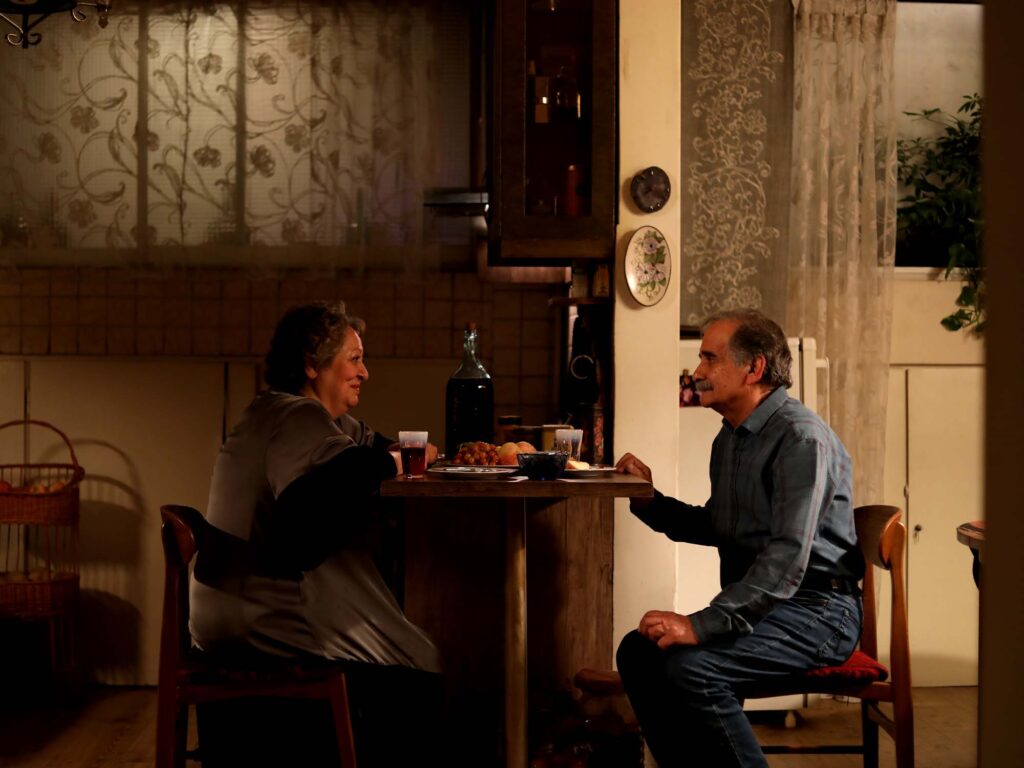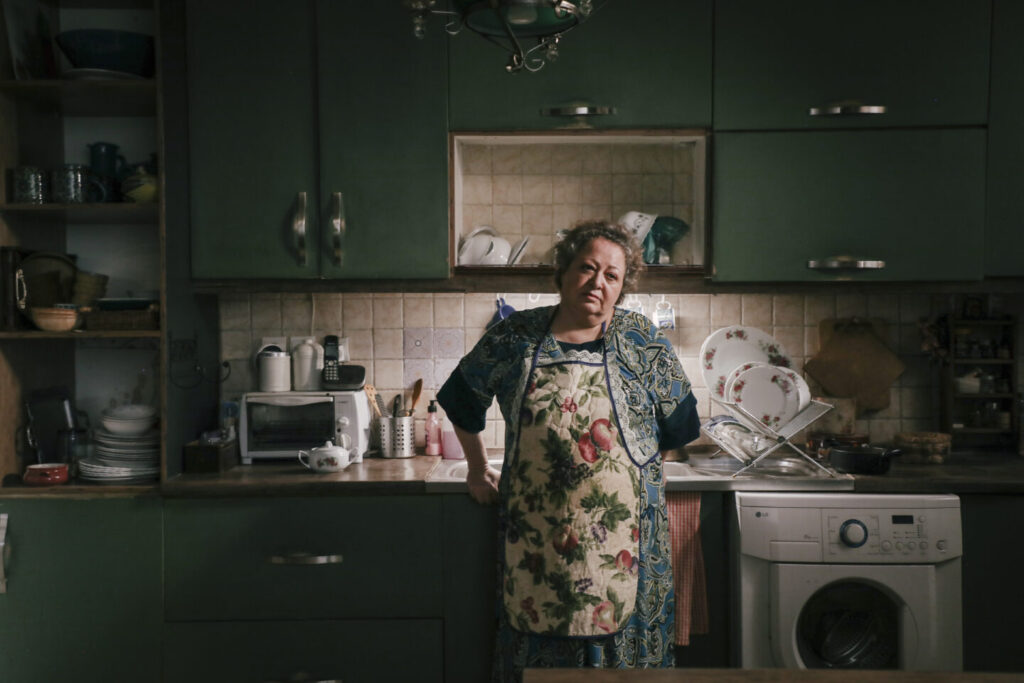At the 2024 Berlin Film Festival, when Lily Farhadpour and Esmail Mehrabi, the lead actors of My Favorite Cake, walked the red carpet for the film’s premiere photoshoot, they held up a large portrait of the film’s directors, Maryam Moghadam and Behtash Saneeha. The directors were unable to attend the festival after Iranian authorities confiscated their passports, preventing them from traveling to Berlin for the film’s world premiere. This poignant moment drew attention to the absence of the directors at the festival and served as a stark reminder of the obstacles faced by independent filmmakers in Iran, who endure not only travel bans but also risk interrogation and potential arrest for their craft.
In the wake of the 2022 Jina Amini uprising in Iran, many filmmakers found themselves facing heightened government censorship and outright bans on their work. Though filmmaking in Iran has been a perilous endeavor since the Islamic Revolution, the political climate following Amini’s death, which occurred after she fell into a coma due to being beaten by the “morality” police, has made it even more dangerous, placing directors and artists at greater risk than ever before. In response to increasing pressure, some filmmakers have opted to work without government permission, fully aware of the danger and the looming threat of imprisonment. This has given rise to Iran’s underground, independent cinema. The first film to emerge under these conditions was Me, Maryam, the Children, and 26 Others by Farshad Hashemi, followed by The Seed of the Sacred Fig by Mohammad Rasoulof, The Witness by Nader Saeivar, My Favorite Cake, and many others, each a testament to the courage and resilience of filmmakers working in such oppressive circumstances.

My Favorite Cake centers on Mahin (Farhadpour), a 70-year-old widow suffocated by loneliness and a monotonous daily routine. Longing for personal freedom in a society tightly controlled by the regime, she sets out on a quest that leads her to Faramarz (Mehrabi), a divorced taxi driver and former soldier whose own isolation mirrors her own. The two spend a night to remember, filled with music, dancing, and brain-bruising quantities of wine.
Created without the approval of Iran’s authorities, the film addresses a range of political issues while avoiding overtly positioning itself as a political work. The film is made without the compulsory hijab, which in itself serves as a subtle but powerful act of defiance. Notably, Mahin is shown without hijab during scenes in which she merely lies asleep in her bed or smokes at the breakfast table—an unconventional choice in Iranian cinema. This portrayal highlights the reality that no Iranian woman, whether religious or secular, wears a hijab in private spaces. Iranian cinema under the Islamic Republic has systematically distorted the image of women, suppressing their true identities and experiences in favor of a controlled, idealized narrative.
“Iranian cinema under the Islamic Republic has systematically distorted the image of women, suppressing their true identities and experiences in favor of a controlled, idealized narrative.”
In another scene, while out buying bread, Mahin encounters a man and attempts to strike up a conversation with him. While waiting in line, she quietly shifts closer and sits next to him, her arm briefly grazing his: a quiet, intimate gesture. Later, when Faramarz lies on her bed, suggesting the possibility of a more intimate moment, Mahin briefly steps into the bathroom to freshen up, delicately applying perfume, a moment that speaks to her desire for connection and self-presentation. The filmmakers offer a rare and powerful opportunity for a woman like Mahin—forgotten both in cinema and in reality—to be seen as worthy of love and admiration in her more advanced age and in her natural body.

The film is rich with feminine nuances that have long been absent from the core of Iranian cinema. A standout scene occurs when Mahin hosts a lunch for her female friends, where the star moment is a candid and humorous discussion of everyone’s various ailments. It is a powerful example of the strength of female friendship and solidarity. Watching these joyful, lively women talk about finding new partners and embracing life to the fullest offers a refreshing and empowering portrayal of older women unapologetically celebrating life. In a society where women’s desires and agency are often silenced, this moment serves as a bold reclamation of their narrative—an affirmation that their stories, laughter, and aspirations matter.
The value of the film comes not only from the removal of a woman’s hijab, but also in the authentic representation of a woman in the privacy of her home. We see the puffiness of her eyelids, the wrinkles on her hands, the swelling of her legs, the sagging skin of her low back; we face a female body that has not been manipulated or distorted in order to be “fit” to be shown on the screen, neither with a forced hijab nor with imposed eroticism. Mahin sleeps, sits, walks, and dresses in a manner that we usually see in women her age. It is a body that a woman has lived with, suffered in, enjoyed, sometimes loved, and sometimes felt ashamed of, but in the end, this body belongs to Mahin and was not given to her from outside the reality of women.
My Favorite Cake offers an enriching blend of heartfelt storytelling with subtle political undertones, expressed in the face of repressed emotions, ethical conflicts, and the constant surveillance by intrusive regime loyalists. It carries profound feminist significance, challenging the suffocating grip of censorship by allowing women to finally see themselves as they truly are—worthy of desire, pleasure, and autonomy. In doing so, it becomes a political act, even without explicitly engaging in political discourse. Yet, its unhappy ending serves as a haunting reminder of the 40-year legacy of repression: it may have slipped past the censors, but the lingering shadow of fear still looms. The film touches on Mahin’s sexual desire— to sleep with a man—but ultimately fails to fully empower her to act on it. Like so many others, Mahin is denied the opportunity to reclaim her body, her agency, and the pleasures that should have been hers. She remains ensnared by the geographical and societal constraints of a land where women are forced to constantly fight for their freedom. But this is only the beginning.